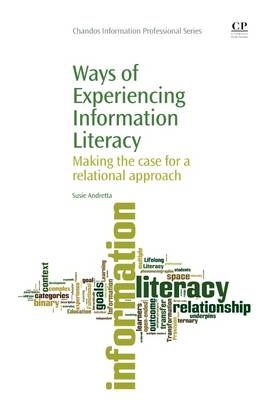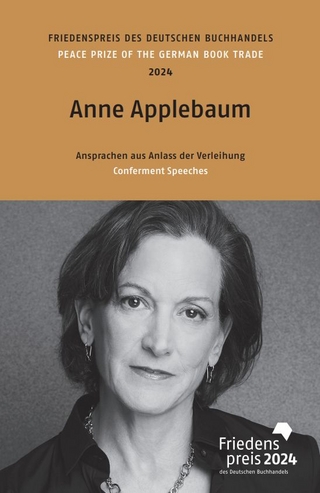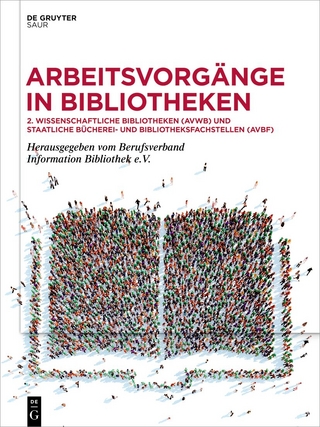
Ways of Experiencing Information Literacy
Chandos Publishing (Oxford) Ltd (Verlag)
978-1-84334-680-7 (ISBN)
This book has two aims: firstly to present an investigation into information literacy by looking at how people engage with information to accomplish tasks or solve problems in personal, academic and professional contexts (also known as the relational approach). This view of information literacy illustrates a learner-centred perspective that will be of interest to educators who wish to go beyond the teaching of information skills. The second aim of this book is to illustrate how the relational approach can be used as an investigative framework. As a detailed account of a relational study, this book will appeal to researchers interested in using the relational framework to examine pedagogical experiences from the learner’s perspective.
Susie Andretta is based at the Department of Applied Social Sciences, London Metropolitan University. The author’s expertise in IL originates from research on the implementation of user-education programmes in combination with student-centred learning strategies.
List of figures and tables
List of abbreviations
Acknowledgements
Foreword
About the author
Chapter 1: Introduction: who this book is for how to use it
Abstract:
Background and overall aim of the research
Outline of the book
Chapter 2: The relational approach explained
Abstract:
The deep and surface approach to learning
The structure of awareness: internal and external horizons
The outcome space of learning
Experiential variation: fostering deep and transferable learning
The relational studies
Conclusion
Chapter 3: How the relational approach was employed in this research
Abstract:
The stages of the empirical research
Further description of specific aspects of the methodology and research methods
Conclusion
Chapter 4: The multiple-context relational approach generated by the empirical research
Abstract:
Comparing the students’ conceptualisations of academic research and information literacy
The coding framework for the final analysis
The four categories of information literacy
Transformation and transfer
Reflections on the frequency distribution of the codes
The multiple-context outcome space of information literacy
Conclusion
Individual stories
Abstract:
Student 4
Student 10
Student 16
Student 19
Conclusion
Conclusion
Abstract:
Contribution to the relational body of research
Contribution to practice
Limitations of this study
Areas for future research
Conclusion
Appendices
Appendix A: Consent form for the Head of Department, London Metropolitan University
Appendix B: Consent form for students
Appendix C: Practical procedures of the empirical research
Appendix D: Abstract of the thesis
References
Index
| Reihe/Serie | Chandos Information Professional Series |
|---|---|
| Verlagsort | Witney |
| Sprache | englisch |
| Maße | 156 x 234 mm |
| Gewicht | 430 g |
| Themenwelt | Sozialwissenschaften ► Kommunikation / Medien ► Buchhandel / Bibliothekswesen |
| ISBN-10 | 1-84334-680-X / 184334680X |
| ISBN-13 | 978-1-84334-680-7 / 9781843346807 |
| Zustand | Neuware |
| Haben Sie eine Frage zum Produkt? |
aus dem Bereich


